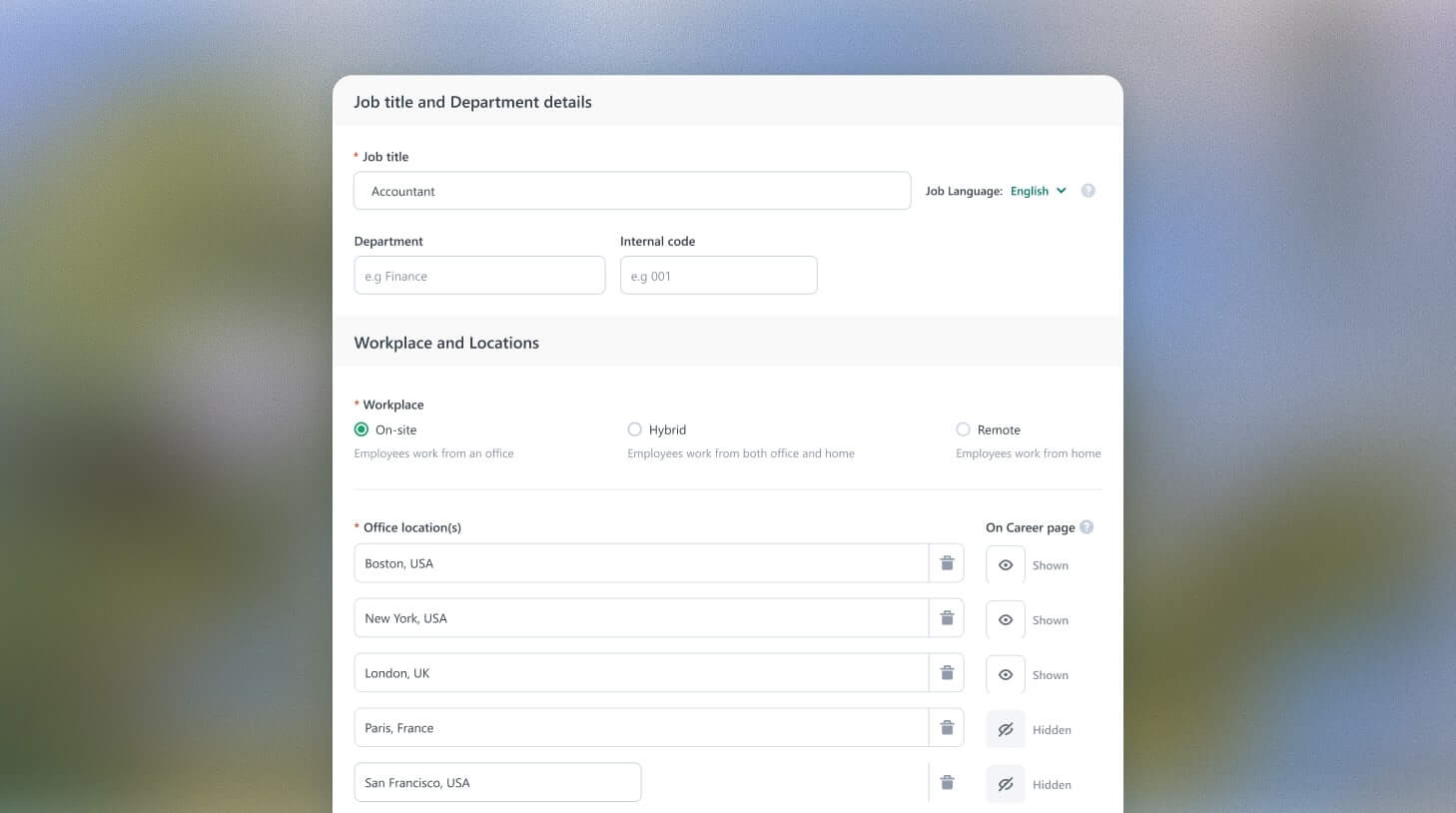Leading during difficult times: 4 real-world tips from employers
Explore real-world employer strategies on leading your employees during global crises. Dive into tips emphasizing empathy, open communication, and workplace flexibility.

The ongoing events in Israel and in the Gaza Strip have dominated headlines lately. And the resulting strong opinions and worries for loved ones make for a very tense environment – including in the workplace.
We asked employers what they were doing to support their workers during these tense times, and we have four takeaways.
Contents
1. Support their mental health
Mental health has been growing as a focal area for many employers in recent years – and it’s no different right now. Min Hwan Ahn, a lawyer and owner of the Philadelphia-based Law Office of Ahn & Sinowitz, says he’s brought in additional psychological support resources for his 250-odd employees and their families.
“We’ve brought in therapists for group sessions and availed one-on-one therapy sessions for individuals that may need them,” he says.
Derrick Hathaway, sales director at VEM Medical, a provider of high-quality medical mold tooling and cleanroom injection molding with locations around the world, says his company offers a comprehensive employee assistance program (EAP).
“[It] provides problem identification, counseling, and referral services for employees and their covered dependents.” Derrick says.
“This program is free, voluntary, and confidential, addressing a broad range of personal and work-related issues affecting mental and emotional well-being.”
2. Open up the channels
Communication is also key. The magnitude of events is such that it can’t really be ignored, and many employers are aware of this.
The challenge is to open up those channels of communication to preempt any fallout that could come from a conflict of opinion between colleagues.
Min in Philadelphia looks to pre-empt this potential situation with company-wide ‘listening sessions’.
“The idea behind these is not to attempt to discuss or analyze the ongoing events or viewpoints,” he says, “but rather to provide a safe space where those affected can express what they are feeling.”
But this doesn’t mean avoiding the topic altogether.
“We don’t shy away from difficult conversations,” Min adds. “We are promoting open dialogue, but we are stringent on enforcing discriminatory behavior or offensive comments not being tolerated.
“This, combined with promoting a respectful approach to discourse, has been an effective strategy for managing differences between employees.”
Melissa Terry, Digital Marketing Manager at VEM Tooling – part of the VEM Group that also includes VEM Medical – highlights this importance as well.
“Open and respectful communication is key in managing differences between employees,” Melissa emphasizes. “We encourage constructive dialogue and understanding of diverse viewpoints while maintaining a strict policy against discrimination or harassment.”
“Open and respectful communication is key in managing differences between employees.”
Meanwhile, Michael Coleek-Johnson, CEO and Co-founder of Embedwitz, a Los Angeles-based website that shares research on embedded platforms, says his recently created communication platform doubles as a space for open dialogue.
“Our staff can speak their mind, express their opinions and concerns. This has helped us manage differences in perspectives constructively and ensure that everyone feels heard and valued.”
Not every employer, however, believes that open discussion in the workplace is the way to go. Nathan Clark, co-founder of the AI solutions company Gate2AI in California, would rather see these conversations take place outside of work.
“We’ve actively discouraged any discussions or debates related to the ongoing events within the workplace to maintain a harmonious and focused environment,” Nathan stresses.
3. Allow for flexibility
Nathan, however, isn’t staying out of it altogether. He’s well aware that his employees will have unique needs as a result of the ongoing situation.
“We’ve implemented a flexible work schedule to accommodate any employees who may need extra time due to personal or family situations arising from these events,” he says.
“This flexibility includes providing paid time off for those directly affected by the situation, allowing them to focus on their families and safety.”
4. Be kind and empathetic
Supporting your employees does not necessarily have to be part of formal company policy – expressions of kindness and empathy can go a long, long way.
CEO Peter Michaels of Yeespy, a parental monitoring solutions company based out of New York, says he’s learned “tough lessons” from what’s happening in Israel in regards to how to be a leader for his employees.
“Now, I have started devoting ample time to my employees’ well-being,” Peter says. “I have started focusing more on providing them with more benefits so that they stay satisfied with the company.
“We provide competitive pay packages, high-quality healthcare options, and employee perks. Our employees and the people they care about must feel supported by the company. This is very important in terms of maintaining one’s health and well-being.”
Meanwhile, Michael relates his company’s previous experience in supporting employees directly affected by the Russian invasion of Ukraine.
“We had a staff whose daughter schooled in Ukraine at the time,” Michael explains. “To imagine a mother in that situation is not quite healthy. We rallied around her and gave her all the warmth and love we harbored.
“Today, both mother and daughter are doing great. The calls, the messages we sent did go a long way, and we were happy we did it together as a team.”
Related: What companies are doing to support Ukrainians and Russians
Support can go a long way
Michael is optimistic that actively leading employees through tense times can have a positive effect in the long run.
“We can get people back on track from being discouraged, weak in spirit to being full of life, cheerful and positive when we communicate with them.”
Frequently asked questions
- How are employers emphasizing mental health during crises?
- Many employers are integrating enhanced psychological support, offering employee assistance programs, group sessions, and individual therapy.
- Why is open communication vital during trying times?
- Open dialogue facilitates understanding, ensures employees feel heard, and prevents conflicts arising from diverse viewpoints.
- How can companies maintain a balance between open discussions and workplace harmony?
- Promote constructive dialogue while enforcing policies against discrimination and harassment. Some employers also designate specific platforms for open discourse.
- What role does flexibility play during crises?
- Offering flexible work schedules and paid time off accommodates unique needs, allowing employees to focus on personal and family situations.
- How can kindness and empathy be incorporated into employee support?
- Besides formal policies, genuine acts of kindness, empathetic communications, and enhanced benefits convey crucial support to employees during tough times.




